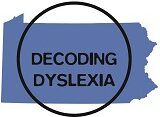What is an educational advocate? Do I need one? How do I find one? If you have found yourself asking these questions, this resource is for you.
An advocate is someone who should have a strong understanding of both federal and state special education law and a passion for helping special needs families. Ideally they should also have a knowledge of local school districts and the services they offer as well as local service providers and evaluators. Advocates can help you understand your rights, obtain the special education services your child needs, facilitate disputes with the school system, attend IEP meetings, and interpret evaluations your child has had. They are not lawyers.
You might be surprised to know that there is actually no requirement for formal training or licensure for advocates and no agency to oversee or regulate them. They may have backgrounds in education or have gone through the special education process themselves with a child of their own. Because there is no official credentialing, it is extremely important that you carefully interview an advocate before hiring one.
There are various ways to go about finding an educational advocate:
- Call local special education attorneys – some special education attorneys employ advocates in their firm; if they don’t they can generally give you a few names of experienced advocates
- Word of mouth – ask other local special education families for recommendations
- Contact your local branch of The Arc – https://thearcpa.org/
- Visit and search online the Council of Parent Attorneys and Advocates (COPAA)
- Visit and search online Wrightslaw Yellow Pages for Kids
Once you gather a list of potential advocates, you will need to carefully interview them. You want to find out their qualifications and if they have expertise in the area(s) of your child’s needs. It is also important to get a sense of their personality and communication style.
Questions to consider asking?
Questions to consider asking?
- What is their background and training?
- How long have they been an advocate?
- Do they work with any special education attorneys? If so, whom
- Do they have specific experience working with dyslexia (or whatever your child’s specific disability is)
- After hearing your story, have they had cases similar to yours? What is their plan or strategy for you?
- Do they have experience working in your school district?
- What do they feel their role is in IEP meetings?
- Have they represented parents in a due process hearing?
- How will you and the advocate communicate with each other?
- Will they meet with your child to learn more about them and their specific unique needs?\What are their fees and how will they bill you?
- Do they charge for travel time?
- Can they provide the name and contact information for families they have helped in the past?
Consider the following to select and Advocate
- Am I confident the advocate has the experience and knowledge I need?
- Do I feel comfortable with the advocate’s demeanor and communication style?
- Do I feel comfortable the advocate respects my input?
- Do I understand and agree with this advocate’s recommendations and plan for moving forward?
- Do I completely understand the fee structure?
Adapted from:
- Wrights Law “10 Tips on Hiring an Advocate” by Pat Howey
- A Day in Our Shoes “6 Reasons you should hire a special education advocate” by Lisa Lightner
- Speak4kidsllc.com
- Copaa.org “Guidelines for Hiring an Advocate”
